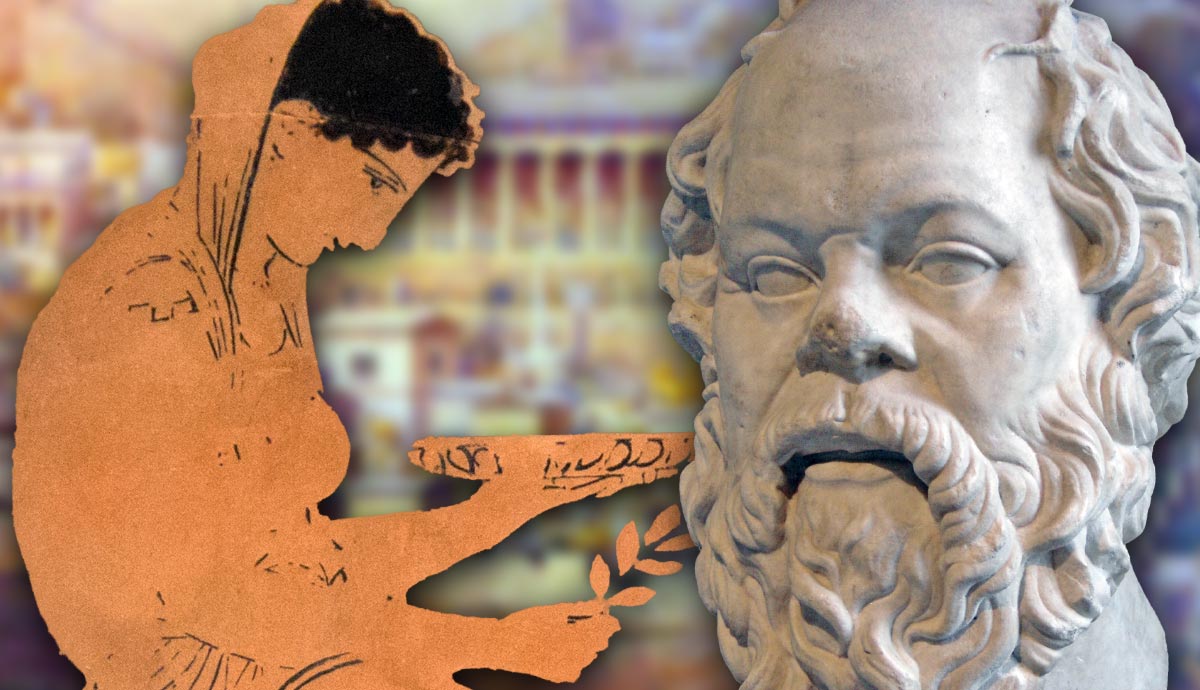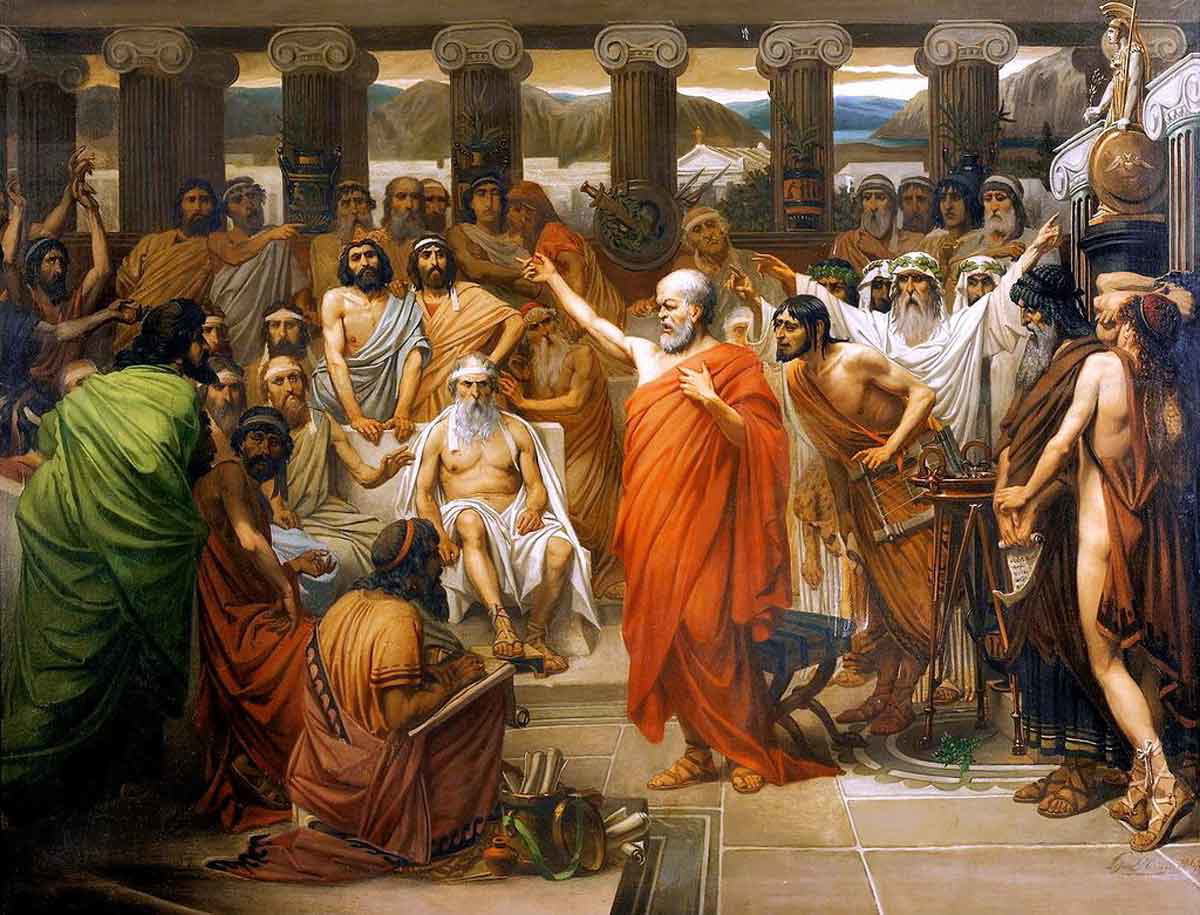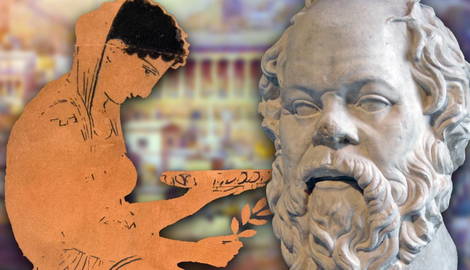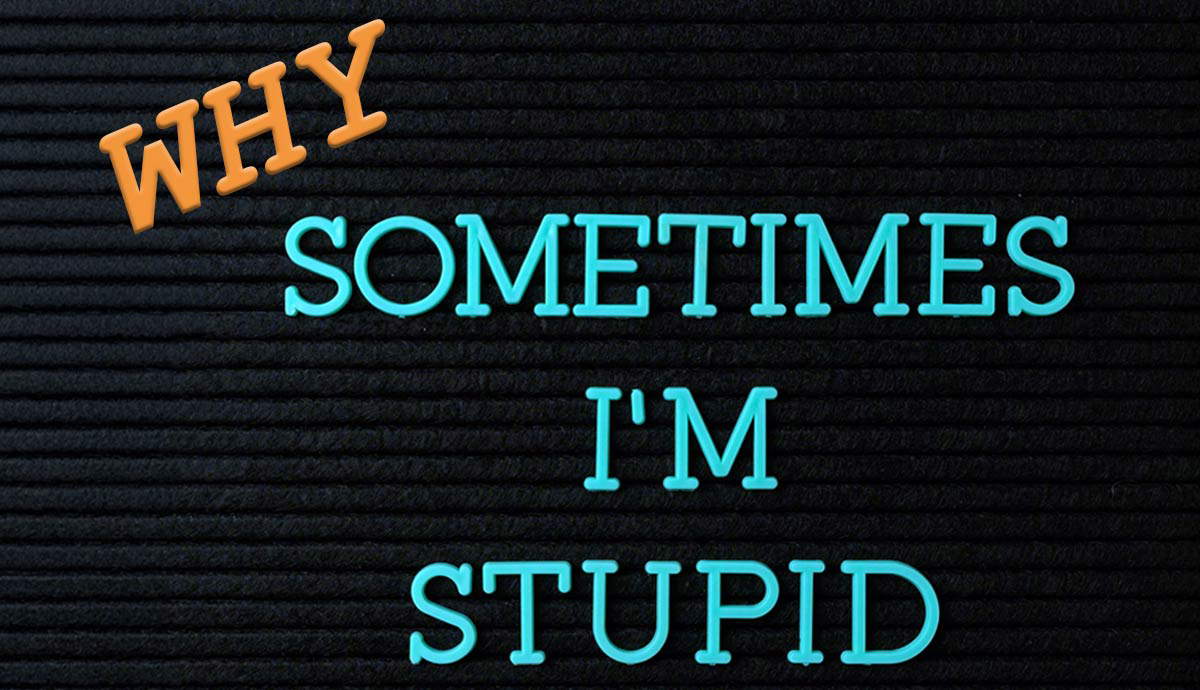
One of the most famous claims attributed to the Greek philosopher Socrates was that he was wise because he knew that he knew nothing. This idea, which is explored in Plato’s Apology, comes in response to a pronouncement by the Oracle at Delphi that there was no man wiser than Socrates in Athens. Why, according to Plato, does Socrates come to believe that it is his knowledge of his own ignorance that prompted the Delphic Oracle to pronounce him wise?
Who Was Socrates?

The ancient Greek philosopher Socrates was active during the 5th century BCE. His thoughts centered largely on ethics and morality, and he spent most of his time asking questions about wisdom, virtue, and justice. Perhaps his most well-known contribution to Greek philosophy was his teaching method, known as the Socratic method. In this format, he asked his students questions and focused more on the thinking behind their answers rather than whether they were right or wrong. Unfortunately, his work challenged the status quo of his time, and ultimately, Socrates was executed in 399 BCE.
How Do We Know About Socrates’ Philosophy?

While Socrates has left a lasting legacy on Western thought, he left no writings of his own. Almost everything we know about Socrates’ positions comes from his students, especially Plato, who cast Socrates as the protagonist in many of his dialogues, which presumably explore Socrates’ own teachings. Nevertheless, the dialogues were not word-for-word quotations of real conversations, but imagined conversations based on Plato’s knowledge of his teacher, and no doubt some of Plato’s own ideas.
Plato studied with Socrates and became known as an important philosopher in his own right for his theories of forms, the cave allegory (watch our video above for more on the allegory of the cave), and the concept of a philosopher-king. He also began teaching his students after opening his Academy in Athens, one of the earliest higher education institutions in the Western world. Other important Greek philosophers, such as Aristotle, studied with Plato at his academy. Plato’s teachings were diverse and have gone on to influence various philosophical branches, such as ethics, metaphysics, and epistemology.
What Was the Delphic Oracle?

According to one of Plato’s dialogues, his Apology, Socrates once received a message from the Oracles at Delphi, a priestess known as the Pythia. She was a conduit through which the Greek god Apollo communicated his prophecies. The Oracle was highly sought after, and the Oracle was considered the omphalos (navel) or center of Greece.
The Pythia appears in many famous myths, from Hercules and his twelve labors to Paris and the Trojan War. The oracles delivered by the Pythia were infamously cryptic. In one famous tale, King Croesus of Lydia sought out the Pythia when deciding how to deal with the growing power of the Persian Empire in the 6th century BCE. The Pythia pronounced that “If King Croesus crosses the river Alis, a great empire will be destroyed.” Croesus interpreted this to mean that if he invaded Persia, he would successfully destroy it, but instead, he was defeated, and it was his own empire that was destroyed.
Delphi’s influence reached its height during the classical period, between the 6th and 4th centuries BCE, the same period when Plato wrote his Dialogues.
What Did the Oracle Say About Socrates?

In the Apology, Socrates is defending himself against the charge of corrupting the youth before Athens’ jury of 500, which happened in 399 BCE before his execution. While defending himself, Socrates claims that he is not a wiseman. To back this claim, he describes how his friend Chaerephon went to the Oracle and Delphi and asked her if there was anyone wiser than Socrates. She answered that there was no man wiser. This confounded Socrates, who both believed that the Pythia never lied, but that this statement was untrue.
The Quest to Understand True Wisdom

To test the Pythia’s statement, Socrates decided to find someone wiser than himself. He began to question people who appeared wise, such as politicians and scholars. While he encountered many people he considered geniuses, none of them possessed the true wisdom essential for living a good life. This was because these wise men also considered themselves to be wise, and it was only Socrates who knew that he was not wise.
“I am wiser than this man; it is likely that neither of us knows anything worthwhile, but he thinks he knows something when he does not.” (21d)
This led Socrates to see himself as a spokesman for the Delphic Oracle. He believed that it was his role to spur the Athenians to greater awareness of ethics and moral conduct through his practice of question and argument, which was designed to expose the contradictions and inconsistencies in people’s beliefs.
The Socratic Paradox

Thus, the Apology presents the Socratic paradox, which has influenced philosophy in Ancient Greece and beyond.
“I know that I am intelligent because I know that I know nothing.” (22d)
Within the Apology, Socrates makes this argument to encourage the Athenian jurors to question their own opinions. Ultimately, this argument fails, and a sentence of execution is passed down.










